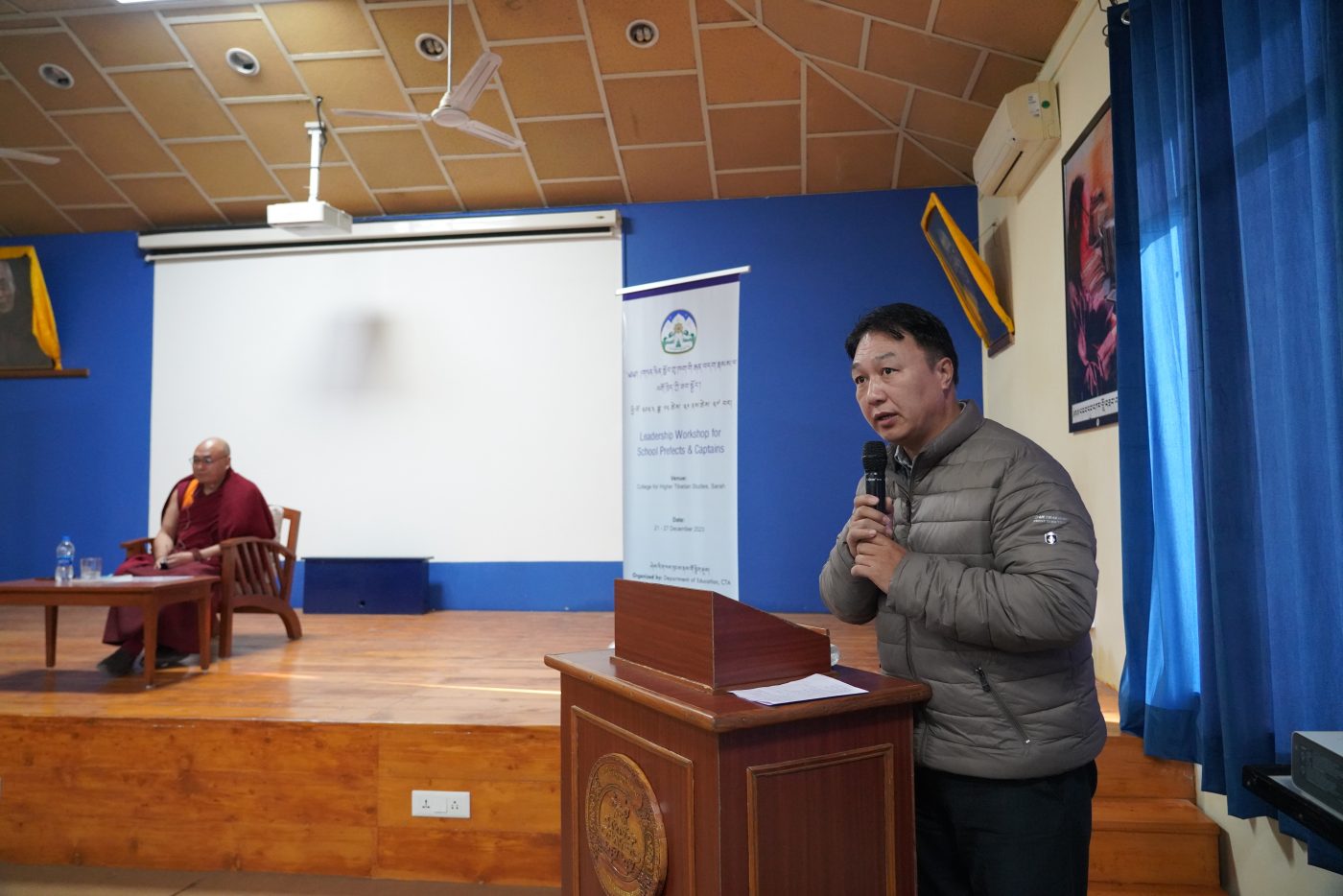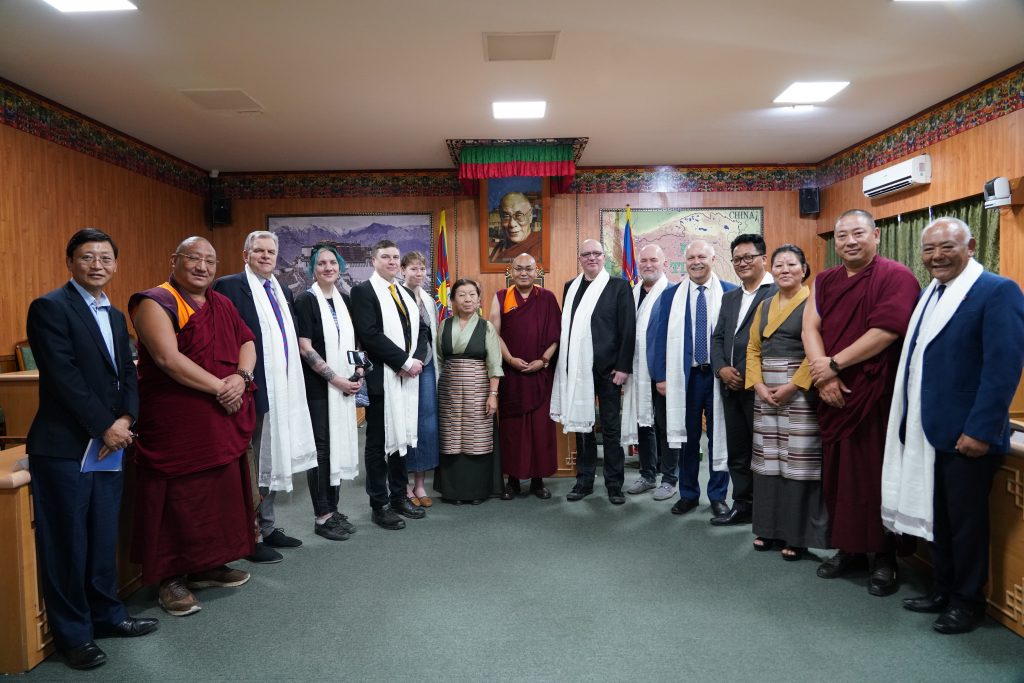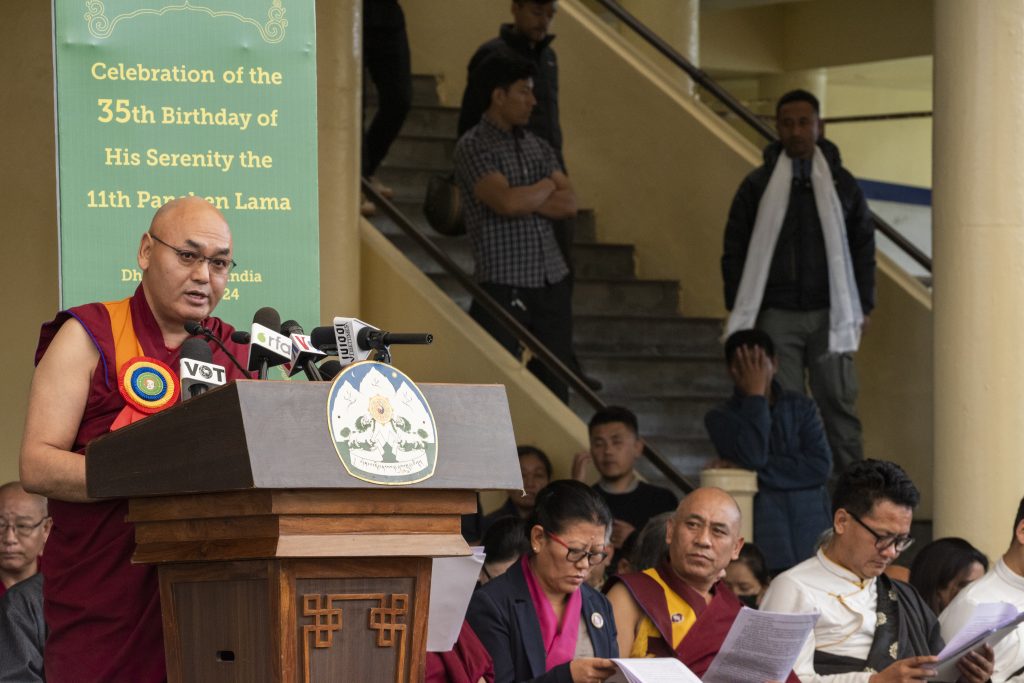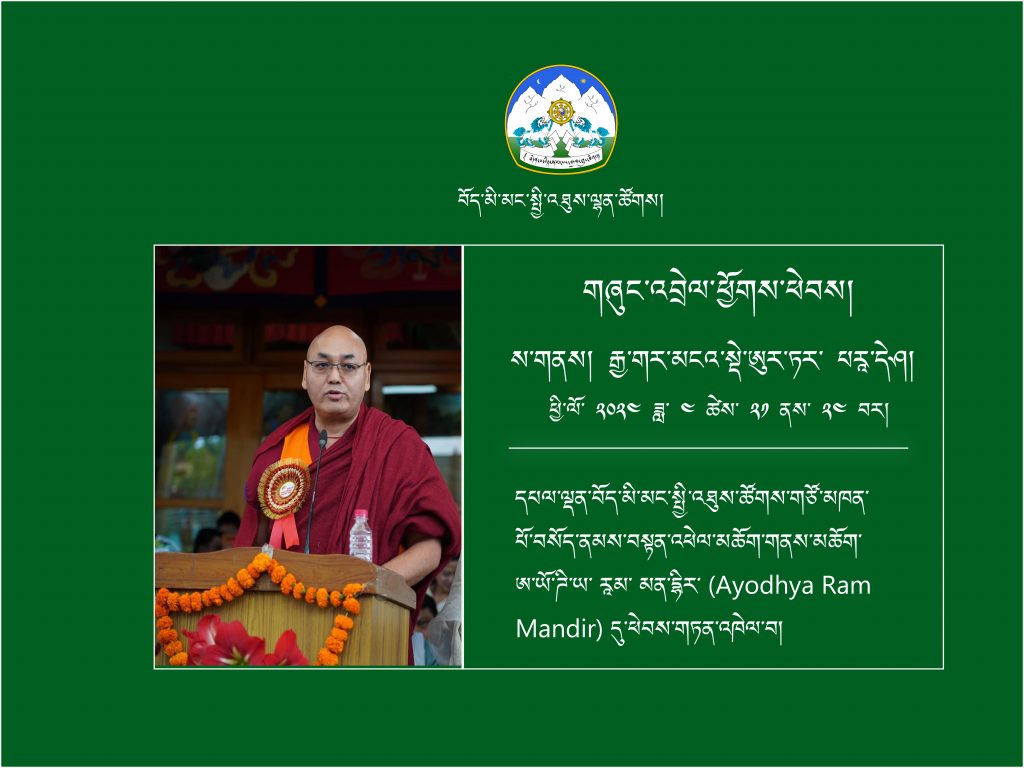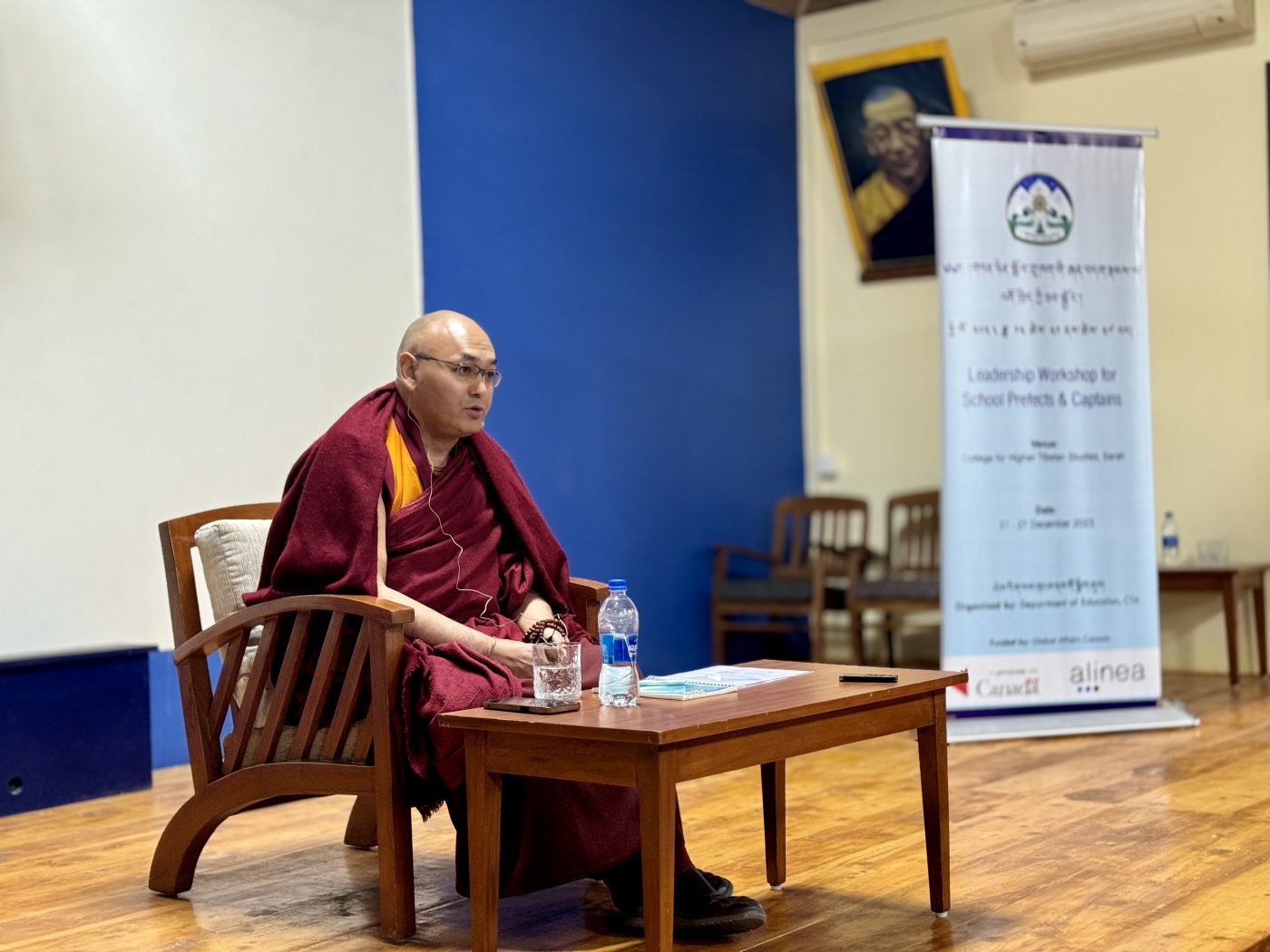
Dharamshala, 22nd December 2023: Khenpo Sonam Tenphel, the Speaker of the Tibetan Parliament-in-Exile, provided insights on the evolution of Tibetan democracy to the participants of a leadership workshop for school prefects and captains of Tibetan schools at the College for Higher Tibetan Studies, Sarah, on December 22, 2023. The workshop, held from December 22nd to 27th, 2023, saw the participation of 44 school prefects and captains and 16 teachers representing 16 Tibetan schools from India and Nepal.
During the workshop, the speaker commenced by delving into the etymology of the term “democracy,” tracing its roots to the Greek words ‘demos,’ signifying people, and ‘kratos,’ denoting power. In a similar vein, the speaker drew attention to the corresponding term in Tibetan that best aligns with the English concept of democracy which he said signifies equality, freedom, rights, and transparency while addressing the contemporary challenges confronting democracy including the Tibetan democracy in exile.
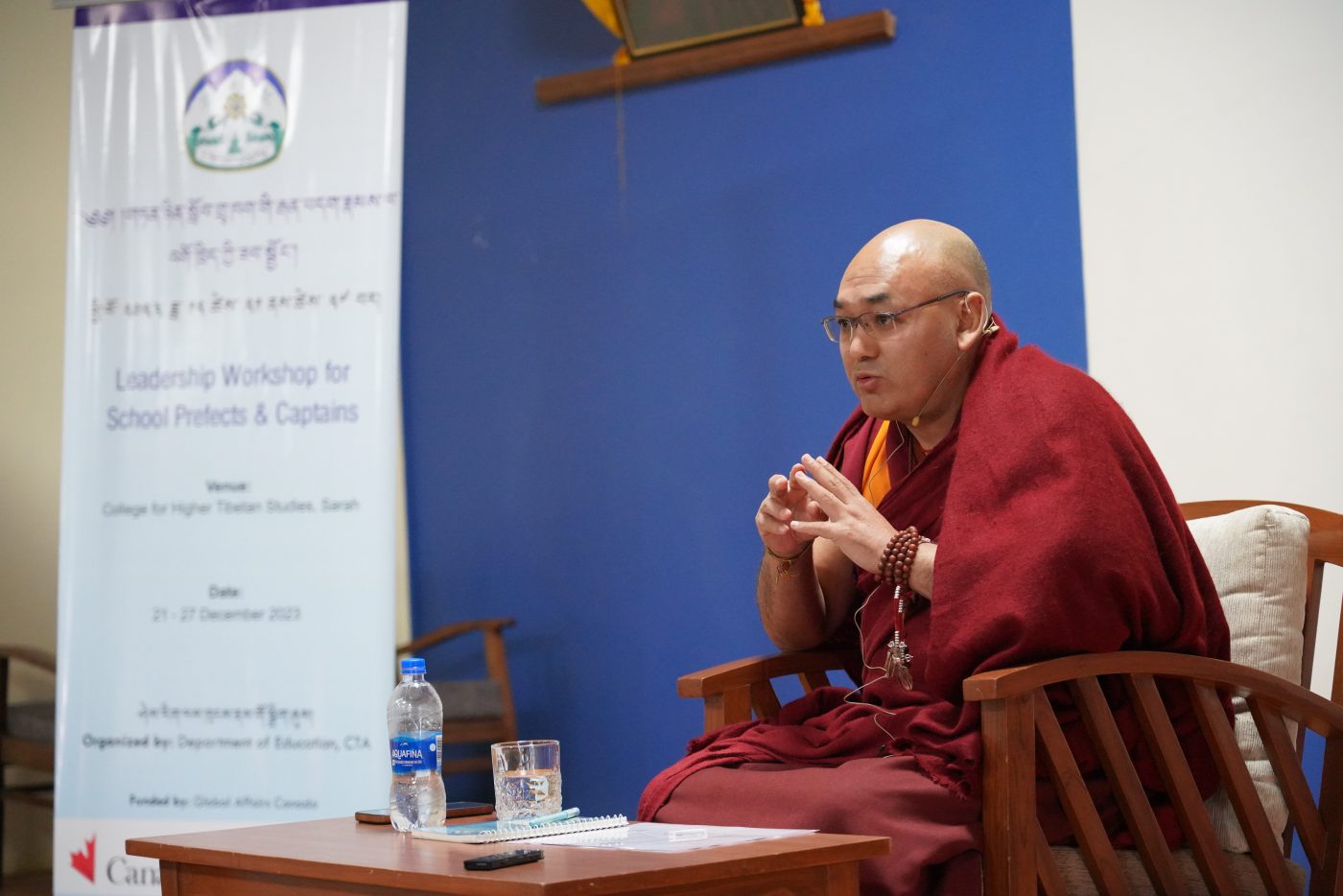
Subsequently, he spoke about the varying observations made by His Holiness Dalai Lama regarding the operations of the Indian parliament during his 1956 visit to India and the Chinese Communist Party’s congress during his 1954 visit to China. It was during these visits that the democratic framework of India profoundly influenced His Holiness, leading him to embrace democratic values as a foundation for fostering a just society.
He explained the trajectory of Tibetan democracy, tracing its roots from the establishment of the Reform Committee and other committees by His Holiness the Dalai Lama in Tibet, a crucial stride toward democracy. Unfortunately, this progress was interrupted by the unlawful occupation of the People’s Republic of China in subsequent years.
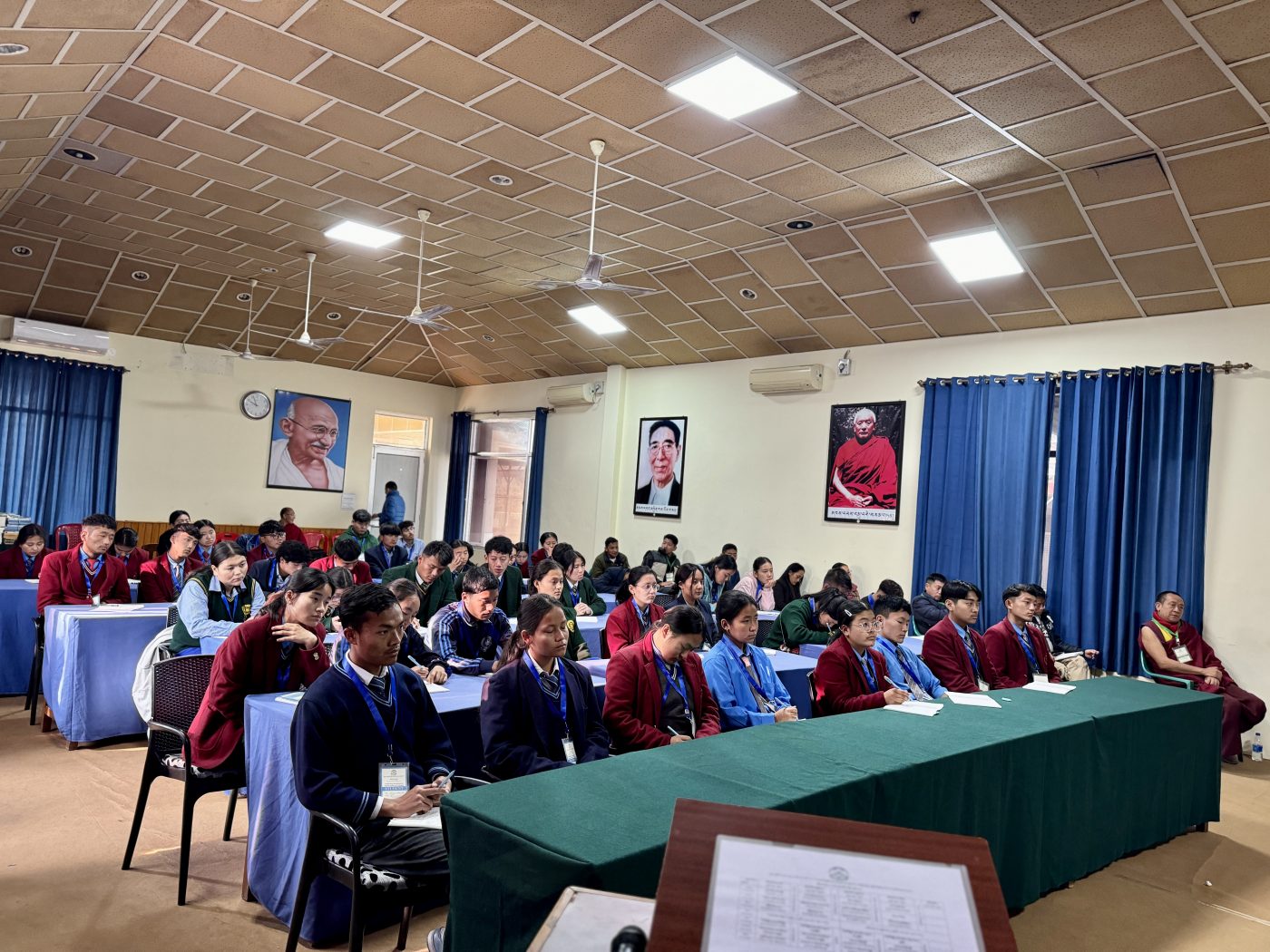
Further delving into the narrative, the Speaker spoke about the submission of a solemn oath on a sworn statement at the sacred place of Bodh Gaya in 1960, vowing to be unwavering in straight forwardly following His Holiness the Dalai Lama, by the representatives from three traditional provinces of Tibet and four religious schools of Buddhism.
At the time, His Holiness guided Tibetans to democratically elect three representatives from their respective provinces and one from each of the four Buddhist schools. These duly elected representatives, on 2nd September of that historic year, undertook the oath, marking their induction as the inaugural members of the Tibetan Parliament-in-Exile (formerly known as the Commission of Tibetan People’s Deputies). Since that momentous day, the 2nd of September is commemorated and celebrated as Tibetan Democracy Day.
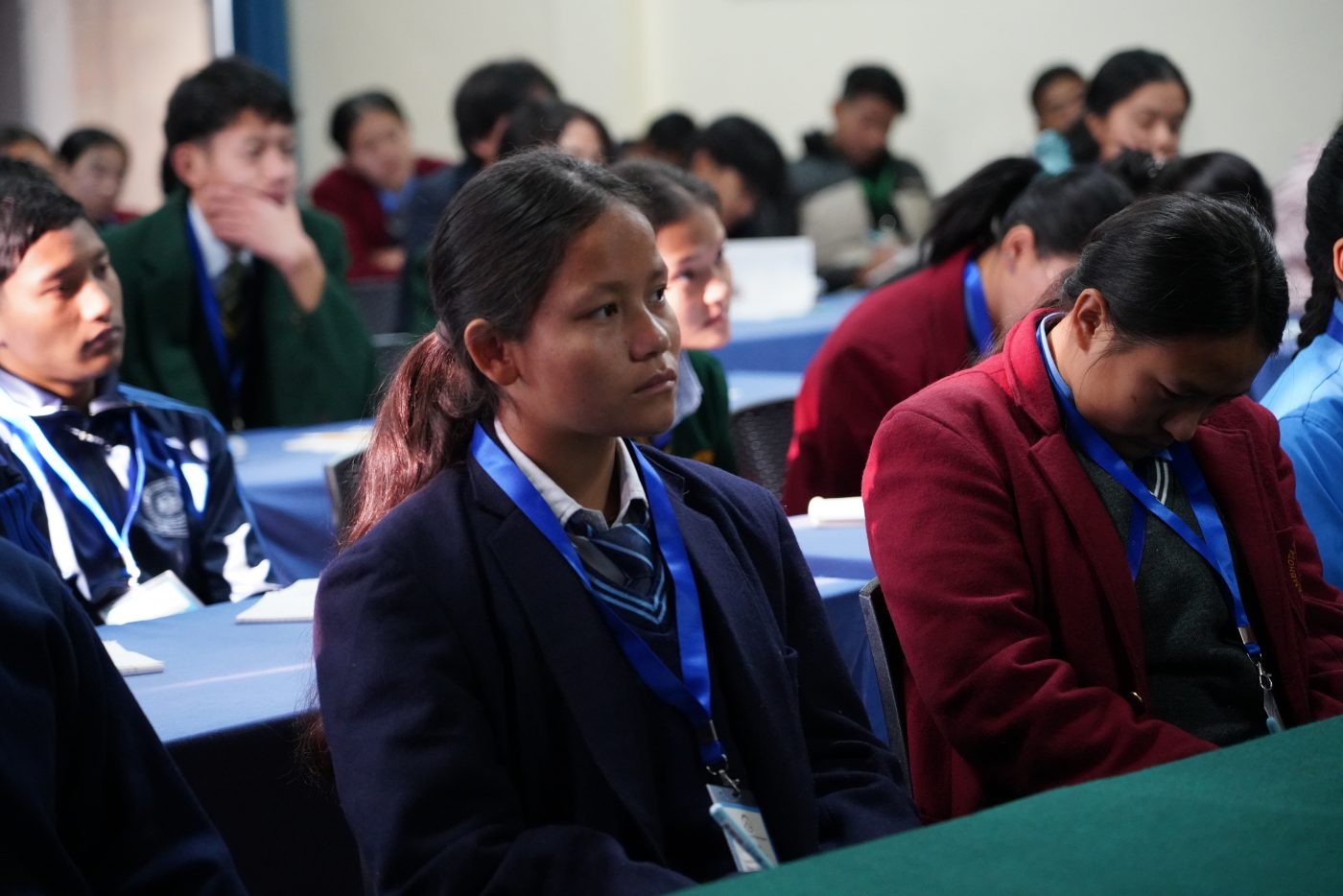
Explaining more about the Tibetan democracy including the unicameral system of Tibetan Parliament-in-Exile, he spoke about additional responsibilities on Tibetans as a diasporic community and on the different functioning of the three pillars and autonomous bodies of the Central Tibetan Administration.
Furthermore, he delved into the changes in the composition, duration, functioning, programs, and bi-annual sessions of the Tibetan Parliament-in-Exile, followed by the adoption of the Charter of Tibetans in exile in 1991 and the current composition of the Tibetan Parliament-in-Exile which has 45 members including 10 representatives from each of the three traditional provinces of Tibet i.e., U-Tsang, Dhotoe, and Dhomey; two from each of the four schools of Tibetan Buddhism and the pre-Buddhist Bon religion; and two representing each of the Tibetan communities in North America and Europe; and one from Australasia and Asia (excluding India, Nepal, and Bhutan).
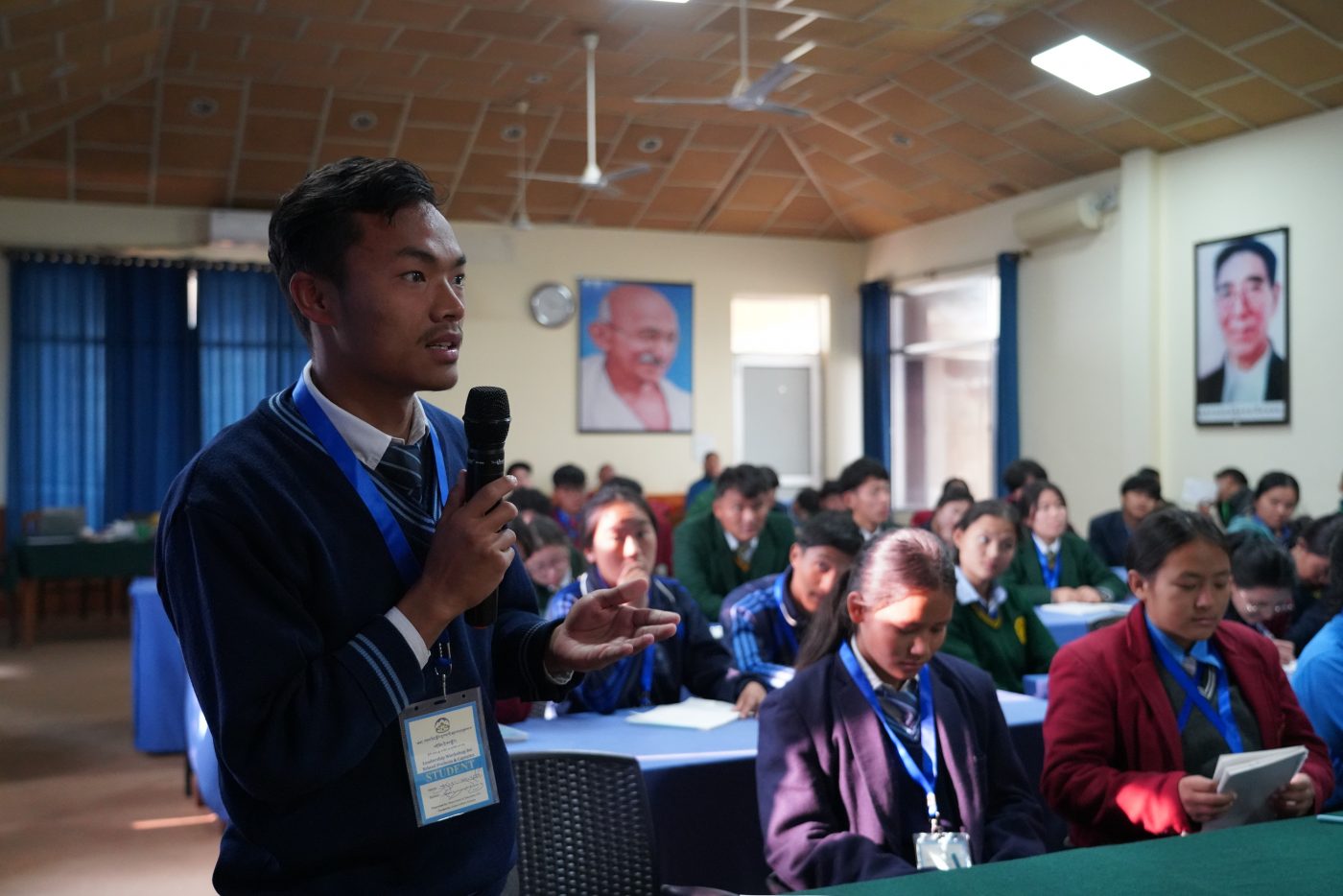
Reaching a milestone in the democratization process of the exiled Tibetans, in 2001, the first-ever Kalon Tripa was directly elected by the Tibetan people, followed by the greatest landmark in Tibet’s history with His Holiness vesting all his political authorities to the elected leaders to benefit Tibetans in the long-run and to make Tibetans pave the way to the full democratization process in 2011.
Finally followed by a Q&A session, the Speaker concluded his address by advising the students who are the future of the Tibetan struggle to be aware of their responsibilities as Tibetans.
